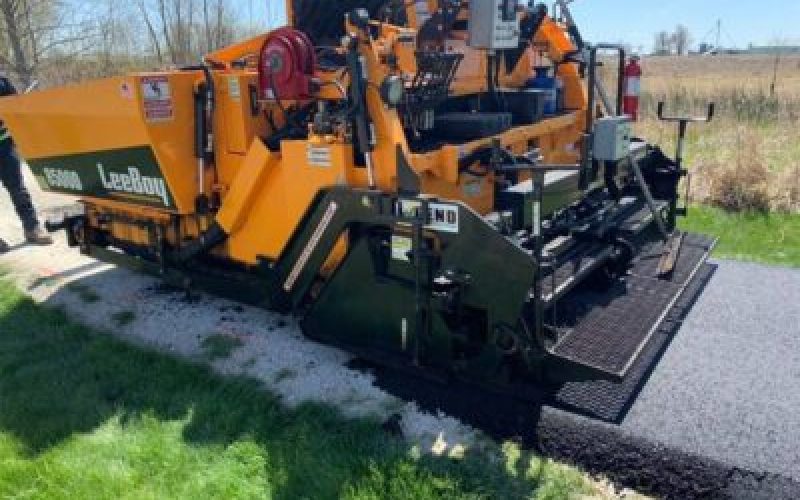Whether it is a small project or a big project, choosing the right asphalt for your pavement is a big deal. In this article, we’ll explain how to ensure your asphalt can handle lots of traffic and lasts a long time. We’ll give you straightforward advice on how to design and take care of your asphalt to stay strong, even when a lot is happening. Keep reading if you want commercial asphalt paving designed for heavy traffic and durability!
The Benefits of Asphalt
When it comes to commercial paving, asphalt stands tall as the superior choice for a multitude of reasons. Its exceptional durability outshines other materials, ensuring your investment lasts for years. Unlike alternatives, asphalt can endure heavy traffic and the wear and tear of daily use, making it the go-to option for savvy property owners.
Moreover, asphalt’s cost-effectiveness is a game-changer. It offers outstanding value without breaking the bank compared to concrete and other materials. This means you can achieve top-quality results while staying within your budget, a win-win situation for any business owner looking to enhance their property.
In addition to its durability and affordability, asphalt paving is a quick and efficient solution. Minimal downtime means less disruption to your business operations, allowing you to enjoy the benefits of a smooth, safe, and visually appealing surface sooner than you might think. Make the smart choice for your commercial property by opting for asphalt paving and experience the advantages that set it apart from the competition.
Does thicker asphalt last longer?
Thicker asphalt does tend to last longer than thinner asphalt. The thickness of an asphalt layer directly influences its durability and ability to withstand various stresses. A thicker asphalt layer offers increased structural integrity, making it better equipped to handle heavy traffic loads without cracking or deteriorating prematurely. It also provides improved resistance to wear and tear, which is crucial for commercial properties with substantial vehicular traffic.
Moreover, the additional thickness contributes to better insulation against temperature fluctuations, ensuring that the asphalt remains resilient in extreme cold and hot weather conditions. Furthermore, it allows for resurfacing when the top layer shows signs of wear, extending the pavement’s lifespan. However, it’s essential to strike a balance between thickness and budget.
How thick should commercial asphalt be?
Determining the ideal thickness for commercial asphalt involves several considerations to ensure the pavement’s longevity and performance. Typically, commercial asphalt projects are constructed with multiple layers. The base layer, which comprises aggregate material, forms the foundation and can range from 4 to 8 inches thick. The thickness of this layer is influenced by factors such as soil conditions and the expected load-bearing requirements of the paved area.
Above the base layer, a binder course of asphalt is applied, usually with a thickness ranging from 3 to 4 inches. This layer serves to enhance the pavement’s support and durability.
Finally, the top layer, known as the surface course or wearing course, is typically 1.5 to 2.5 inches thick. This surface layer is crucial for achieving a smooth, skid-resistant, aesthetically pleasing finish.
When considering all these layers together, a commercial asphalt pavement can range from approximately 8 to 15 inches in thickness. However, consulting with an experienced asphalt contractor who can conduct a site assessment and tailor the thickness recommendation to your project’s specific needs is essential.
What weakens asphalt?
Asphalt weakening can be attributed to several factors. One significant factor is oxidation, which occurs as asphalt is exposed to sunlight and oxygen. This natural process makes the asphalt surface brittle and more susceptible to cracking and aging. Additionally, water damage poses a considerable threat to asphalt. Water can infiltrate cracks and joints in the pavement, causing erosion of the underlying layers and compromising the structural integrity. Freeze-thaw cycles can further worsen the damage by inducing expansion and contraction within the pavement.
Another common cause of asphalt deterioration is the impact of heavy traffic, particularly in areas with frequent truck usage. This constant stress can lead to the development of cracks and potholes. Chemical spills, like oil or gasoline, can break down the asphalt binder, diminishing its adhesive properties. Poor drainage systems that allow water to accumulate on the surface can expedite asphalt weakening by permitting water penetration into the pavement layers. Addressing these factors through regular maintenance and proper design is essential for extending the lifespan of asphalt surfaces and preserving their strength and durability.
Do You Have More Questions?
We believe in offering quality service and have a proven track record of helping customers! Please contact us today if you have any further questions regarding our services.









